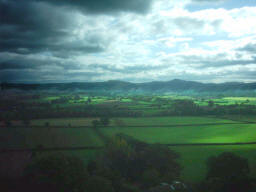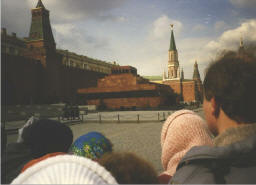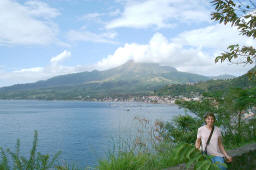G. Matthew Fricke
 I am a Research Associate Professor of Computer Science at the
University of New Mexico, where I study computation in complex decentralised systems like supercomputing clusters, robot swarms,
social insects, and immune systems. I also have an interest in the ethics of artificial systems and complexity measures as biosignatures.
The robotics and computational biology research is funded by the Moses Biological Computation Lab.
Through the Center for Advanced Research Computing I collaborate with scientists from a variety of disciplines
to scale up their computations to supercomputers. I enjoy teaching whenever I can and mentoring students.
I am a Research Associate Professor of Computer Science at the
University of New Mexico, where I study computation in complex decentralised systems like supercomputing clusters, robot swarms,
social insects, and immune systems. I also have an interest in the ethics of artificial systems and complexity measures as biosignatures.
The robotics and computational biology research is funded by the Moses Biological Computation Lab.
Through the Center for Advanced Research Computing I collaborate with scientists from a variety of disciplines
to scale up their computations to supercomputers. I enjoy teaching whenever I can and mentoring students.
I earned a BA in Anthropology (Archaeology) from Appalachian State University; and a BS in Mathematics, and MS (Artificial Intelligence) and PhD degrees in Computer Science from the University of New Mexico. Through my consulting company, Go Figure Software, I've supported researchers in the UNM Physics and Los Alamos National Labs with custom scientific software.
My wife, Suzanne, and I have four sons: Henry, Leo, Owen, and Tristan.
Suzanne is an art historian (CV) who taught courses ranging from the Palaeolithic to the post-modern at the University of New Mexico, the Institute of American Indian Arts, and the Santa Fe Institute for Art and Design. She owns Gallery Hózhó, a fine arts gallery for New Mexico artists in Albuquerque. She is also an author and curator, with publications including As We See It, Indigenous Futurisms: Transcending Past, Present, Future, and Indigenous Futurisms in the Hyperpresent Now, and she is a frequent contributor to First American Arts Magazine. Curated shows include Octopus Dreams and Future Imaginaries: Indigenous Art, Fashion, Technology. She earned her undergraduate degree from Mills College, her master's degree in Italian Renaissance art from the University of Chicago, and her PhD from UNM. Her dissertation, Institutionalising Taste: Kenneth Milton Chapman, the Indian Arts Fund, and the Growth of Fine Art Pueblo Pottery, examines the emergence of Pueblo pottery as fine art.
I was born and raised in Shrewsbury, UK, but have lived in Mount Airy, North Carolina and Albuquerque, New Mexico for most of my life. I have been interested in computers since playing with a BBC Computer when I was nine years old. I came to New Mexico for Harvard Ayers' southwest field school and stayed to work for the Park Service at Petroglyph National Monument.Office Schedule
Teaching
Courses
CS491/591: High Performance Computing
CS533: Experimental Methods in Computer Science
CS591: Programming Swarm Robots
CS523: Complex Adaptive Systems
CS261: Mathematical Foundations of Computer Science
CS151: Computer Programming Fundamentals with Python
CS151: Computer Programming Fundamentals with C++
HPC Workshops
General HPC and SLURM
Beginner Introduction: Basic Linux and Interactive SLURM
Intermediate Introduction: Batch SLURM with FORTRAN
Intermediate Introduction: Batch SLURM with Python
Intermediate Intro to SLURM
Intermediate Intro to SLURM with NAMD
SLURM and Gaussian (1 hr version)
Intermediate SLURM and StarCCM
PBS, Modules, GNU Parallel, Conda, and MPI
Parallel Processing with MPI and SLURM (50 min)
Computer Science and Math
CS4/542: Introduction to Parallel Processing
CS523: Complex Adaptive Systems
CS/Math 471: Introduction to Scientific Computing
Discipline-Specific
Chemistry 525: Structural Biology – Crystallography and CARC
Biology 4/519: Biodiversity Informatics
Quantum Computing for Quantum Chemistry
Global Climate Change
Computational Methods for Geoscience
Radio Astronomy and CASA
Scientific Computing Lecture (CS471, 2018)
Computational Fluid Dynamics
Quantum Computing
Special Events
CARC Annual Meeting: Machine Learning
ESCAPE Workshop with JupyterHub
General CARC Introductions (Older)
CARC Workshop v1.5
CARC Workshop v1.1
CARC Workshop v1.4
Bits and Pieces
CS152: Computer Programming Fundamentals with Java
CS201: Discrete Mathematics
CS251: Intermediate Programming with Java
CS523: Complex Adaptive Systems (Spring 2013)
Q-bio (Summer 2018)
Scientific Computing (HPC Lecture)
Coding for Beginners
Conferences
Online Chair (2024–25) for the IEEE Symposium on High-Performance Interconnects (HOTI), an annual conference established in 1993 that brings together researchers and practitioners in high-performance computing and networking.
Publications
Journals
Assembly theory and its relationship with computational complexity. Chris Kempes et al. Nature Complexity 2 (1), 27 (2025). Web (PDF hosted here embargoed until May 2026)
Space-Time Causal Discovery in Earth System Science: A Local Stencil Learning Approach. J. Jake Nichol, Michael Weylandt, G. Matthew Fricke, Melanie E. Moses, Diana Bull, Laura P. Swiler. JGR Machine Learning and Computation (2025), Pre-publication PDF, Web
More is Faster: Why Population Size Matters in Biological Search. Janatul Ferdous, G. Matthew Fricke, and Melanie Moses. Journal of Computational Biology (2024), PDF, Web
CO2 emissions during the 2023 Litli Hrtur eruption in Reykjanes, Iceland: 13C tracks magma degassing. Tobias Fischer et al. Bulletin of Volcanology (2024), Web, PDF
Drone CO2 measurements during the Tajogaite volcanic eruption. John Ericksen et al. Atmospheric Measurement Techniques (2024), Web, PDF
Sensor Equipped UAS for Non-Contact Bridge Inspections: Field Application. Roya Nasimi, Fernando Moreu, and G. Matthew Fricke. Sensors (2023), PDF
Aerial Survey Robotics in Extreme Environments: Mapping Volcanic CO2 Emissions With Flocking UAVs. John Ericksen et al. Frontiers in Control Engineering (2022). Web, PDF
The Grayness of the Origin of Life. Hillary H. Smith et al. Life 11, 498 (2021). Web, PDF
Machine learning feature analysis illuminates disparity between E3SM climate models and observed climate change. Nichol, J. Jake; Matthew G. Peterson; Kara J. Peterson; G. Matthew Fricke; Melanie E. Moses. Journal of Computational and Applied Mathematics (2021). Web, PDF
Aerial strategies advance volcanic gas measurements at inaccessible, strongly degassing volcanoes. Emily J. Liu et al. Science Advances 6(44), eabb9103 (2020). PDF
Swarm Foraging Review: Closing the Gap Between Proof and Practice. Qi Lu, G. Matthew Fricke, John C. Ericksen, and Melanie E. Moses. Current Robotics Reports (2020). PDF
Variability in the Analysis of a Single Neuroimaging Dataset by Many Teams. Rotem Botvinik-Nezer et al. Nature (2020). Paper
Modeling T Cell Motion in Tissues During Immune Responses. Cannon, Judy; Melanie E. Moses; Janie R. Byrum; Paulus Mrass; G. Matthew Fricke; Humayra Tasnim. Biophysical Journal 116 (2019): 322a. doi: 10.1016/j.bpj.2018.11.1749.
Quantitative Measurement of Naïve T cell Association with Dendritic Cells, FRCs, and Blood Vessels in Lymph Nodes. Tasnim, Humayra et al. Frontiers in Immunology 9 (2018). PDF
ROCK regulates the intermittent mode of interstitial T cell migration in inflamed lungs. Paulus Mrass et al. Nature Communications (2017)
Persistence and Adaptation in Immunity: T Cells Balance the Extent and Thoroughness of Search. Fricke, G. Matthew et al. PLoS Computational Biology 12(3): e1004818 (2016). PDF
Immune-inspired search strategies for robot swarms. G. Matthew Fricke, Joshua Hecker, Judy Cannon, and Melanie Moses. Robotica 34(8) (2016): 1791–1810. PDF
Quantifying the Effect of Colony Size and Food Distribution on Harvester Ant Foraging. T. P. Flanagan et al. PLoS ONE (2012). PDF
GetBonNie for building, analyzing, and sharing rule-based models. Bin Hu; G. Matthew Fricke; James R. Faeder; Richard G. Posner; William S. Hlavacek. Bioinformatics (2009)
Receptor aggregation by intermembrane interactions: A Monte Carlo study. G. Matthew Fricke; James L. Thomas. Biophysical Chemistry 119(2) (2006): 205–211. PDF
Conference Proceedings
Navigating the Edge: UAS Boundary Tracing for Efficient Volcanic Plume Monitoring. John Ericksen et al. IEEE International Symposium on Safety, Security, and Rescue Robotics (SSRR) (2024). PDF
A Bio-Inspired Transportation Network for Scalable Swarm Foraging, Qi Lu, G. Matthew Fricke, Takaya Tsuno, and Melanie E. Moses. IEEE/RSJ International Conference on Intelligent Robots and Systems (2020).
LoCUS: A loss-tolerant volcano survey algorithm, Ericksen John et al. IEEE Robotics and Computing Conference (IRC) (2020)
Ignorance is Not Bliss: An Analysis of Central-Place Foraging Algorithms. Abhinav Aggarwal et al. IEEE/RSJ International Conference on Intelligent Robots and Systems (2019). Paper PDF, Presentation PDF
Comparing physical and simulated performance of a deterministic and a bio-inspired stochastic foraging strategy for robot swarms Lu, Qi et al. IEEE/RSJ International Conference on Robotics and Automation (2019)
Brief Announcement: On Site Fidelity and the Price of Ignorance in Swarm Robotic Central Place Foraging Algorithms. Aggarwal et al. PODC (2019). https://doi.org/10.1145/3293611.3331572 PDF
A Distributed Deterministic Spiral Search Algorithm for Swarms. Fricke et al. IROS (2016). PDF
Distinguishing Adaptive Search From Random Search in Robots and T cells. Fricke et al. GECCO (2015)
From Microbiology to Microcontrollers: Robot search patterns inspired by T cell movement. Fricke et al. ECAL (2013). Paper
How Ants Turn Information into Food. Flanagan et al. IEEE SSCI – ALIFE (2011). PDF
Emergent Representation in a Robot Control Architecture. Claiborne et al. UNM-NASA PURSUE Conference (2000)
White Papers
Comment on Docket No. FR-6111-P-02: HUD's Implementation of the Fair Housing Act's Disparate Impact Standard. S. Gipson Rankin et al. PDF
Community Report from the Biosignatures Standards of Evidence Workshop. V. Meadows et al. PDF
Book Chapters
"Using RuleBuilder to graphically define and visualize BioNetGen-language patterns and reaction rules." Suderman, Ryan; G. Matthew Fricke; William S. Hlavacek. In Modeling Biomolecular Site Dynamics, Methods in Molecular Biology vol. 1945. PDF
"Ant Colonies as a Model of Human Computation." Moses, Flanagan, Letendre, and Fricke. In Handbook of Human Computation, Springer (2014). Website
UNM News Articles
Selected news articles covering Matthew Fricke's research, mentorship, and collaborative projects.
VolCAN: Volcanic Drone Research
UNM's VolCAN Team Makes History in Canary Islands
Deployment of autonomous drones to sample volcanic gases during an eruption.
Engineering in Action Features Project VolCAN
Technical development and field deployment.
NASA Robotics Challenges
UNM Team Qualifies for Second Phase of NASA Robotics Challenge
CHILI HOUSE: Autonomous Space Agriculture
Could Plants Control Robots on Mars?
Partnering for Success: NASA and Supercomputing Competitions
SIMReef: Reef Modelling and Environmental Computing
UNM Researchers Take a Deep Dive into Our Changing Planet with SIMReef Project
HPC Student Mentorship
UNM Competes in HPC Student Cluster Competitions
CARC Team Travels to Denver for Supercomputing Conference
Student Theses and Dissertations
PhD Dissertation: Jannatul Ferdous, Exploring Immune System through Computational Modeling: A Comprehensive Study of Lymph Nodes and Immune Response Scaling, Vaccine Efficacy, and Large-Scale Extreme First Passage Time , UNM, 2025. PDF
PhD Dissertation: John Ericksen, Aerial Robotic Studies of Volcanic CO₂ Emissions, UNM, 2025. PDF
PhD Dissertation: Jake Nichol, Seeking Structure in Complex Systems: From Feature Analysis to Space-Time Causal Discovery with Earth Science Applications, UNM, 2025. PDF
PhD Dissertation: Humayra Tasnim, Insight Into Complexity: Novel Information Theoretic Analysis of Spatiotemporal Interactions, UNM, 2024. PDF
MS Thesis: Antonio Griego, Supervised Neural Network Learning for Improved Passivity in Robot Interaction Control Applications, UNM, 2025. PDF
MS Thesis: Quincy Wofford, Reproducible Application Platforms for Distributed Computing Systems, UNM, 2023. PDF
MS Thesis: Michael Gurule, The Impacts of Transfer Learning for Ungulate Recognition at Sevilleta National Wildlife Refuge, UNM, 2023. PDF
Social Media
Facebook:
https://facebook.com/gmfricke
YouTube:
https://www.youtube.com/user/MatthewFricke
Google Scholar:
https://scholar.google.com/citations?user=hdPxTWwAAAAJ&hl=en
LinkedIn:
https://www.linkedin.com/in/gmfricke/
PGP Key
Pretty Good Privacy Email Key: http://fricke.co.uk/pgppublickey.txt
Photographs
Travel Photos
View all photos directly in Nextcloud Memories .
(posted here before social media was a thing)
Tikal, Guatemala
Monaghan, Ireland
New Mexico
Mt. St. Helens, Oregon
North Carolina
San Diego, California
Yr Wyddfa (Snowdon) and Anglesey, Wales
Shrewsbury, England
Charles Darwin's Childhood Home
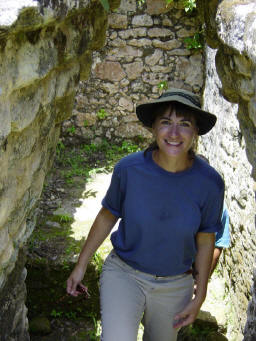
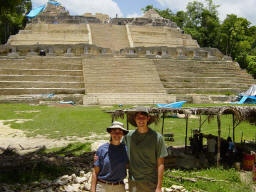
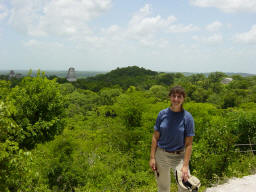
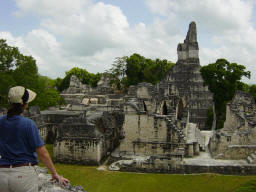
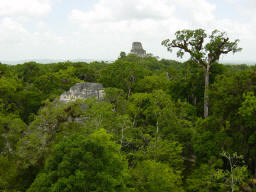
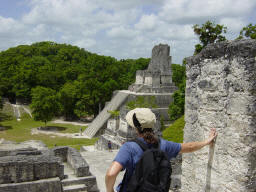
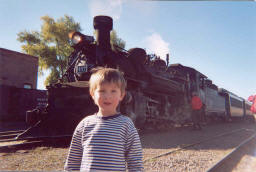

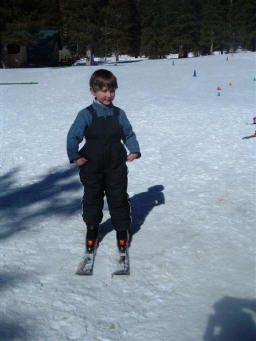
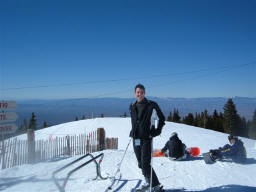
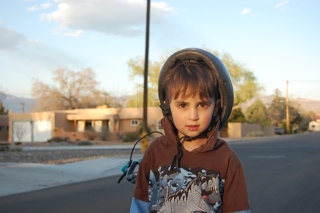
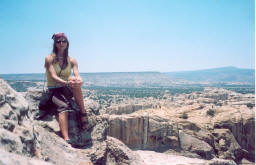
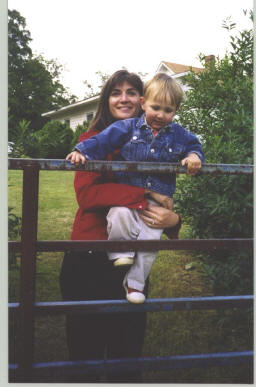
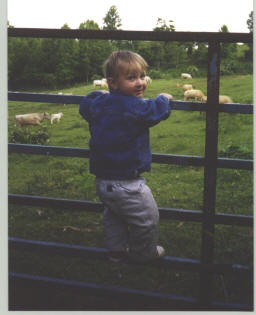
_small.jpg)

